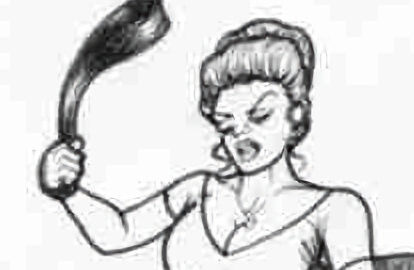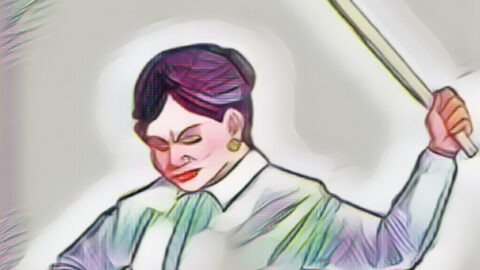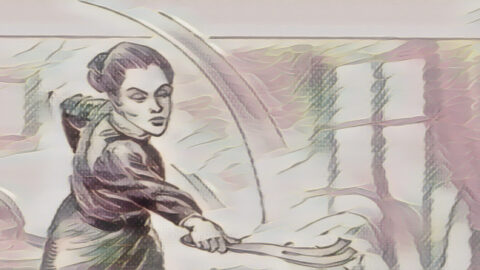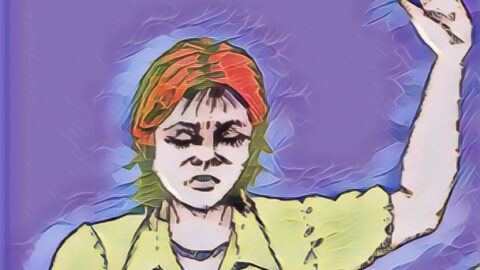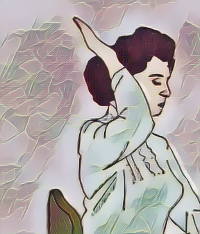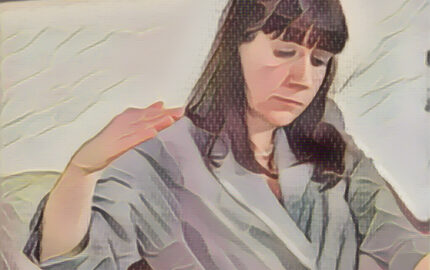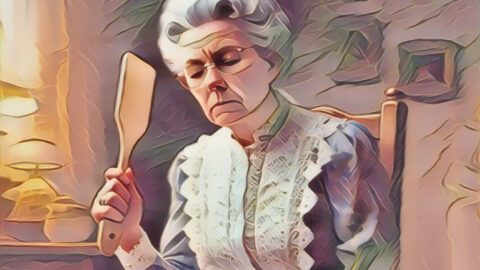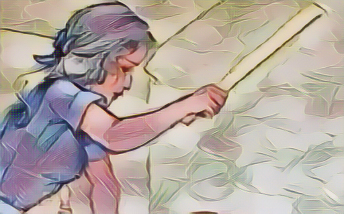(gap: 2s) My childhood unfolded in a small, sleepy town where the days seemed to stretch on forever, and the air always carried the scent of cut grass and distant woodsmoke. Our neighborhood was a patchwork of quiet streets, each lined with tidy hedges and the occasional, well-loved corner shop. It was the kind of place where everyone knew your name, and secrets rarely stayed hidden for long.
(short pause) When I was in third grade, my family began attending a semi-fundamentalist Protestant church on the edge of town. The church itself was a squat, red-brick building with a white steeple that caught the morning sun, and inside, the air was thick with the mingled smells of old hymnals and strong coffee. My mother, always a little anxious and stretched thin by the demands of four children, seemed to be searching for something—maybe guidance, maybe a sense of control. The church, with its stern sermons and unwavering certainty, offered her both.
(pause) It was there, in the echoing fellowship hall, that my mother first heard the phrase, “Spare the rod, spoil the child.” I remember the way her face tightened as she listened, her lips pressed into a thin line. She was convinced—almost overnight—that discipline was the answer, that she needed to wield authority with a firmer hand. And so, with a kind of grim ceremony, she selected a wooden kitchen spoon to serve as her ‘rod’. I can still picture it: pale, smooth, and slightly worn from years of stirring soup, now repurposed as an instrument of order.
(pause) I was skeptical, even at eight years old. I remember eavesdropping on her phone call with Aunt Linda, my mother’s voice low and resolute as she explained her new approach. I couldn’t help myself—I blurted out, half-joking, half-resentful, “Well, mother’s hitting the kids with a spoon now.” The words hung in the air, heavy and strange. Aunt Linda’s reply was brisk: “That means you too, Laura.” I felt a chill then, a sense of inevitability settling over me.
(pause) Life at home shifted subtly after that. There was a new tension in the air, a sense that any misstep might be met with the sharp sting of the spoon. My siblings and I eyed each other warily, as if we were all waiting for the first crack in the dam. My mother, for her part, seemed both relieved and burdened by her new role—her voice a little sharper, her movements more deliberate.
(pause) The incident that set everything in motion happened on a Sunday, after church. The church had a small, fenced-in playground for the younger children, a patch of grass dotted with battered swings and a sandbox that always seemed to be half-empty. That day, the sun was bright and the air was thick with the sound of children’s laughter and the distant drone of cars on the highway. My mother was wrangling my two younger sisters, trying to get them buckled into their car seats, and she asked me to keep an eye on my little brother while she brought the car around.
(pause) My brother was always sensitive, quick to tears and easily unsettled. As soon as my mother disappeared from view, he began to fret, his small hands twisting the hem of his shirt. I tried to reassure him, pointing across the parking lot to where our mother was loading the babies into the car. “See? She’s right there. She’ll be back in a minute.” But my words only seemed to make things worse. His face crumpled, and he let out a wail that echoed across the playground, drawing the attention of two girls nearby.
(pause) When my mother returned, her face flushed and her patience frayed, she demanded to know what had happened. The two girls, eager to be helpful—or maybe just to be part of the drama—told her that I had pointed out that she was leaving, conveniently leaving out the part where my brother was already in tears. My mother’s eyes narrowed, her jaw set. She hustled us into the car, her silence heavy and ominous. As she buckled my brother in, she turned to me and said, in a voice that brooked no argument, “You’re getting the spoon when we get home.”
(pause) I sat in the back seat, my heart pounding, a hot flush creeping up my neck. I tried to replay the scene in my mind, searching for the words that might convince her of my innocence, but I couldn’t find them. Maybe I was too proud, or maybe I sensed that nothing I said would matter. The verdict had already been delivered, and I was powerless to change it. I stared out the window as the town slipped by—the familiar shops, the tidy lawns, the old men sitting on benches in the shade—feeling suddenly alien in my own life.
(pause) The drive home was long, at least half an hour, and every minute stretched out, thick with dread. My siblings were quiet, sensing the storm that hovered over me. My mother’s hands gripped the steering wheel, her knuckles white. We were supposed to meet another family from church for lunch, and as we neared the restaurant, I mustered the courage to ask, my voice barely above a whisper, “Please don’t talk about the spanking with them.” She nodded, her face softening just a little, and I felt a flicker of relief. But when we arrived, the other family wasn’t there. My mother turned to me, her eyes searching, and asked if I wanted to eat first or go home and get it over with. The thought of sitting through lunch with the threat hanging over me was unbearable. “Let’s just go home,” I said, my voice small.
(pause) At home, the house felt different—quieter, the air heavy with anticipation. My mother moved with a kind of weary determination, fixing lunch for my siblings while I sat at the kitchen table, my stomach churning. I watched her open the drawer and pull out the wooden spoon, her face unreadable. She called me to the bathroom, her voice flat. (short pause) The hallway felt impossibly long as I walked toward the bathroom, each step echoing in my ears, my legs heavy and unsteady. The door closed behind me with a soft click that seemed to seal my fate.
(pause) The bathroom was small and cold, the tiles icy beneath my bare feet. The air was thick with the scent of soap and the faint, metallic tang of the radiator. My mother sat on the closed lid of the toilet, the wooden spoon resting across her lap like a scepter. I stood before her, my hands trembling, my breath shallow and quick. My mind raced with desperate thoughts—maybe if I explained, maybe if I cried, maybe if I just ran. But I did none of those things. I simply waited, feeling the weight of her disappointment and the inevitability of what was to come.
(pause) She reached for me, her hand gentle but firm, and guided me over her knee. The world seemed to shrink to the cold tiles beneath my face and the rough fabric of her skirt against my cheek. I could hear my own heartbeat, loud and frantic, and the faint hum of the bathroom fan. The spoon felt impossibly heavy in her hand. (short pause) There was a moment of stillness—a breath held, a silent plea—before the first swat landed.
(pause) The sound was sharp, a crack that echoed off the tiles and seemed to vibrate in my bones. The pain was immediate, a hot sting that bloomed across my skin and made my eyes water. I bit my lip, determined not to cry, but the second swat came quickly, and then a third, each one building on the last until the pain was all I could feel. The rhythm of the blows was relentless, the sound of wood on flesh mingling with my ragged breathing and the soft, muffled sobs that finally escaped my throat.
(pause) My thoughts tumbled over each other in a frantic rush—anger, shame, confusion, a desperate wish to be anywhere but here. I wondered if my mother felt any of it, if her heart ached the way mine did, or if she was simply following the script she’d been handed by the church, by her own fears. I tried to remember the last time she’d held me just to comfort me, not to correct me. The memory felt distant, unreachable.
(pause) By the time it was over, my resolve had crumbled. I was sobbing openly, my face pressed against her skirt, the fabric damp with my tears. My mother’s hand lingered on my back for a moment, awkward and uncertain, before she let me go. I stumbled from the bathroom, my bottom throbbing, my cheeks burning with humiliation and pain. The hallway seemed longer than before, the house impossibly quiet.
(pause) I collapsed onto my bed, burying my face in the pillow, my shoulders shaking with the force of my sobs. The afternoon light slanted through the curtains, painting golden stripes




















































